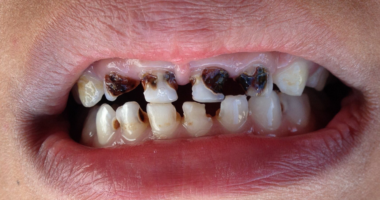Does kefir consumption improve gut health in critically ill patients? Recent studies have highlighted the potential benefits of kefir in enhancing gut health, particularly in ICU patients. Research has shown that kefir consumption can lead to significant changes in the gut microbiome, including an increased abundance of beneficial species like Lactococcus raffinolactis.

Background
- ICU patients often experience gut dysbiosis, a decrease in good bacteria and increase in harmful ones.
- This imbalance is linked to higher risks of infections, organ failure, and death.
- Antibiotics and steroids commonly used in ICU treatment further harm gut health.
- Prior attempts with probiotics have shown limited success.
- Fermented foods like kefir offer a promising alternative due to their potential benefits for gut health.
The human gut microbiota plays a crucial role in overall health, with disturbances linked to various diseases. Kefir, a traditional fermented milk product, has been associated with several health benefits such as anti-inflammatory and anti-pathogenic effects.
Specific microorganisms present in kefir contribute to these positive effects, although further research on kefir’s effects on human health is warranted.
In a study comparing the effects of different dietary interventions, daily consumption of kefir resulted in detectable changes in the gut microbiome and metabolome of healthy participants over a 28-day period.
The study also investigated the impact of an inulin-enriched diet and a commercial probiotic product, highlighting kefir’s unique influence on the gut microbiota.
Study Details
- This was a small, open-label trial to assess the safety and feasibility of kefir in ICU patients.
- 54 patients with functioning digestive systems were enrolled.
- Kefir was administered orally or through a feeding tube in increasing doses.
- Stool samples were collected before and after kefir administration to analyze gut bacteria.
- The study also monitored safety and side effects.
After all. it was found that Kefir administration was safe and feasible, with a high adherence rate from patients. No severe side effects linked to kefir were observed. Although gut bacterial diversity did not significantly increase, there were changes in the types of bacteria present. The study observed an improvement in the Gut Microbiome Wellness Index (GMWI) in patients receiving kefir, suggesting a positive shift in gut health.
What is kefir and how is it made?
What is Kefir? Kefir, pronounced kee-feer, is a fermented drink made from the milk of cows, goats, or sheep. It contains around 60 unique species of probiotics that are beneficial for gut health and digestion. The word “kefir” originates from the Turkish word “keif,” meaning “good feeling”.
How is Kefir Made? Making kefir at home is a simple process that requires milk, a glass jar, and kefir grains. Here are the steps to make kefir:
- Place a few teaspoons of kefir grains and 1 cup of milk in a glass jar. Full-fat milk is recommended for better consistency.
- Cover the jar with a dish towel or paper towel secured with a rubber band.
- Let the jar sit at room temperature for 24-48 hours to allow the milk to ferment and thicken.
- Drain the kefir through a cheesecloth into a cup, saving the strained kefir grains for the next batch.
Kefir comes in various forms, including kefir milk made from fermented cow, goat, or sheep milk. There are also dairy-free versions like coconut or oat milk kefir available in stores.
Moving into the health benefits, kefir is rich in probiotics and nutrients that support digestive and gut health. It may help treat gastrointestinal diseases like irritable bowel syndrome and improve heart health by reducing damage caused by metabolic syndrome. Additionally, kefir can aid in controlling blood sugar levels and lowering cholesterol.
Conclusion:
This study suggests that kefir is safe and feasible for ICU patients with functional digestive systems. While gut diversity didn’t improve significantly, a positive shift in gut health was observed based on the GMWI. Further research with control groups and optimized protocols is needed to confirm these findings and better understand the potential benefits of kefir in improving outcomes for critically ill patients.
Don’t Miss | Can Snoring Increase Stroke Risk In Adults? Here’s What Experts Want You To Know









